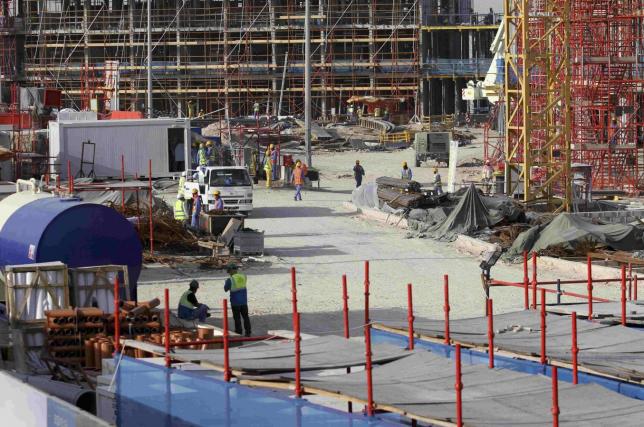What’s causing the delay in signing BLA?
Kathmandu, June 2
The government’s plan to sign bilateral labour agreement (BLA) with major destinations for job-seekers has failed to gather momentum due to the lukewarm response from some labour recipient countries.
The Ministry of Labour and Employment (MoLE) has exchanged draft of BLA with Malaysia and Saudi Arabia since long, however, they have yet to conclude the agreement.
Ministry officials express lack of hope regarding BLA with Malaysia because the government of Malaysia seems reluctant to seal the deal. The Ministry of Foreign Affairs, during the bilateral meetings of high-level officials and Nepali embassy in Malaysia, has repeatedly been corresponding with concerned authorities to materialise the deal. Similarly, the deal with Saudi Arabia — another major labour destination — has also been pending since long.
During an interview with The Himalayan Times on April 25, Minister for Labour and Employment Deepak Bohara had mentioned that his ministry was set to sign BLA with Saudi Arabia in the first week of May. However, the pact has not been signed till date. MoLE has proposed BLA and Household Services Workers’ Agreement with Saudi Arabia.
“We have finalised all the processes from our side for both the agreements and invited the minister and senior officials from MoLE to Saudi to sign the pact,” said Khalid Al Harbi, consular at the Embassy of Saudi Arabia in Nepal.
The government has banned sending household service workers to Gulf countries, including Saudi Arabia, since September of 2014.
“We will open the household service workers sector only after the agreements are signed,” said Govinda Mani Bhurtel, spokesperson for MoLE, adding, “We are going to sign the agreement to ensure security of the labourers.”
Both sides have more or less agreed to the BLA, but a clause regarding compensation to the family of labourers (if they die during work) in Household Services Workers’ Agreement has been a major sticking point. MoLE has proposed 50,000 Saudi riyal (around Rs 1.45 million) as compensation, but its Saudi counterpart has been refusing to agree to the clause citing Saudi labour law already offers enough protection to ensure that the rights of domestic workers are not violated.
However, labour law experts have said that Saudi labour Law is silent about the rights of domestic workers in Saudi Arabia. The recently introduced law to protect rights of domestic workers has provisioned than an employer can be slapped a penalty of up to 10,000 Saudi riyal if he or she violates the contract, but there is no provision regarding insurance or compensation for the labourer.
“We are trying to convince and conclude BLA and Household Services Workers’ Agreement with Saudi Arabia as soon as possible,” said Bhurtel.
As per Bhurtel, the labour recipient countries are not be solely blamed for delay in signing the BLA. More recently, MoLE has forwarded the draft BLA with Jordan to the Ministry of Law, Justice and Parliamentary Affairs to take its consent on the matter from joint secretary-level decision. But the law ministry has returned the draft and asked for its resubmission requesting decision from at least secretary-level. Earlier all the drafts were forwarded for consent from joint secretary level decision of the law ministry and foreign affairs ministry. “So, this is basically a procedural delay,” said Bhurtel.
Along with Jordan, MoLE has also been preparing to sign BLA with Lebanon, Kuwait and Oman.
The government has already signed BLA with Qatar, Bahrain and United Arab Emirates. Apart from that, the government-to-government (G2G) labour agreement with South Korea and Israel has already been signed. Based on the G2G pact, the government agencies are involved in selection of labourers to be sent to aforementioned countries.






